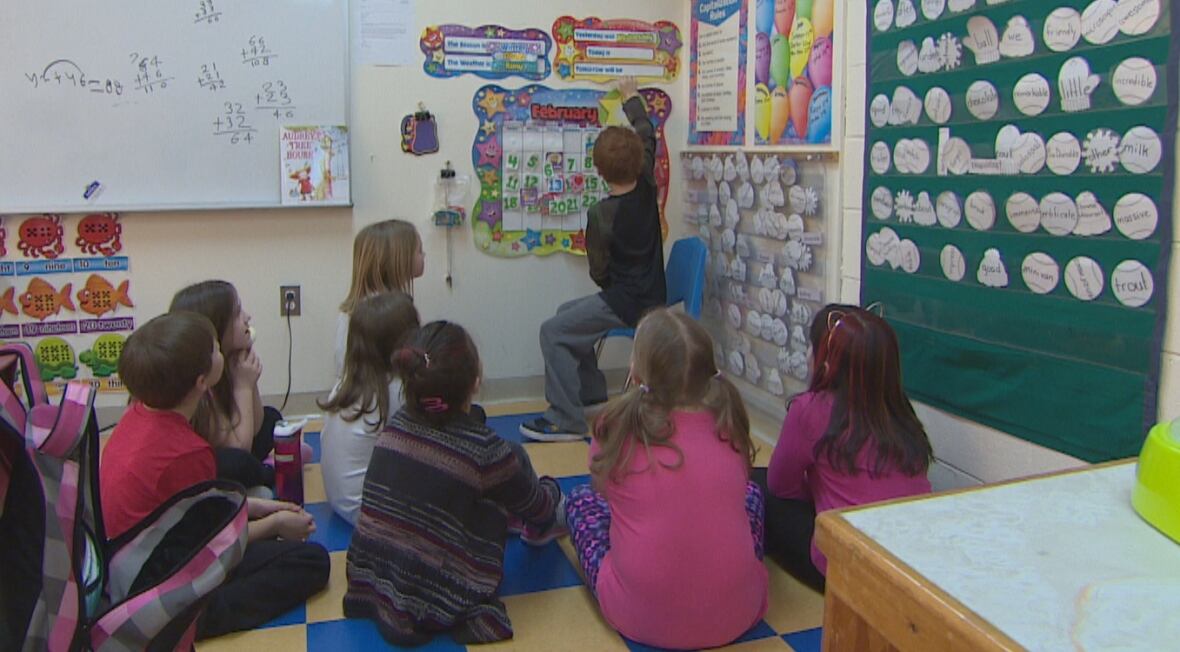Parent frustrated as English schools lag behind francophone schools for online learning
Teachers association says pandemic is exaggerating inequalities

It's unlikely that schools will reopen this year, leaving some parents, who are juggling work and their children's education at home, feeling overwhelmed.
Kevin Power is frustrated his son has had no face-to-face interaction with his Grade 5 teacher.
"In terms of face-to-face interaction for instruction and feedback on work submitted or anything of that nature, no, there hasn't been any face-to-face interaction with my son in particular," said Power.
The province announced March 16 that schools would close indefinitely, just days after the worldwide coronavirus pandemic was declared.
The closures and stay-at-home orders have led to a massive disruption in daily lives of students, teachers and their parents.
Power said the Newfoundland and Labrador English School District e-mails to parents were confusing, and so is the online learning platform.
"You didn't know if it was science, or math, or health, or what grade it was for or anything. So it was just it was a bit too much with not enough guidance," said Power.
"It was just a little bit overwhelming initially."

Power wants teachers to provide more instruction. He said it's happening in other provinces and in the province's francophone schools. He's frustrated the same opportunities aren't available for his son.
"Why not some minimal, an hour a day, face-to-face instructions with the professionals trained to be able to do it?" Power said.
He said the instruction would be good for structure, and students' mental health and well-being.
"It's almost another example of how Newfoundland is behind the curve on so many things," he said.
More instruction for francophone students
Meanwhile, Nicole Labossière's two children, who attend École des Grands-Vents in the province's francophone school system, are starting more structured programming with online teaching.
Labossière's child in primary school receives one hour of instruction per day with their teacher.

"They're learning things like how to work the video conferences and how to send the teacher a Google Doc and stuff like that."
Labossière's son, in junior high school, is getting two hours of instruction a day, concentrating on French and math. She said his whole class is online together and it's a good balance of school work, technology and socialization.
"Yes, learning is important. But I think they're not going to do terribly in life because they missed a couple of months of school," she said.
Teachers respond
Dean Ingram, president of the Newfoundland and Labrador Teachers' Association, said teachers are in regular contact with students.
Ingram is worried the suspension of in-school classes has exaggerated inequalities. He said there's a big difference in the living and learning situation between many students, especially when it comes to technology and internet access.
He said working parents and multiple siblings may share one computer, some homes have limited or no internet access, while others may have more dedicated resources for their children.
"There has to be a certain degree of flexibility because there's a lot of variance in the learning situation for all of our students," said Ingram.

"Simply throwing a lot of resources at students right now, we can't confuse that with actual student learning," he said.
The association also said there are differences between the English and French school systems. The English system has about 64,000 students in 250 schools, compared with 354 students in six schools in the French System.
He said when school does resume, teachers will do benchmarking exercises to determine students' learning needs. In the meantime, Ingram said, any parents who have concerns should contact their child's teacher.
'Principle of equity and access': NLESD
In a statement, the Newfoundland and Labrador English School District said teachers are expected to support all students.
"We're guided by the principle of equity and access for all," said the statement.
In an emailed statement, the NLESD said learning at home will look different for students depending on their grade level, the student's needs, teacher and family circumstances.
The NLESD said teachers are focusing on getting materials to students who may not be able to access online learning and ensuring students eligible to graduate meet the necessary requirements.
Kim Christianson, director of education for Conseil scolaire francophone provincial de Terre-Neuve-et-Labrador, said they're adapting to virtual learning and experiencing similar problems. She said they also have about 15 families without internet access, and they're working with providers to get access.
"On the west coast there's a family that couldn't have access because they don't have internet or cellular providers," she said.
The French board is also making plans to share about 20 iPads with some families that don't have access to similar technology.
School unlikely to resume
Meanwhile, Premier Dwight Ball said the provincial government has not made a final decision, but in-class instruction is unlikely to resume this year.
"That doesn't mean education stops," said Ball.
"Those teachers are providing some real good education to students, even at a different location, from dining rooms to living rooms."
Clarifications
- A previous version of this story included a photo that was from a previous, and unrelated story, about kids staying in touch with their grandparents. The children depicted, and their parents, were not interviewed as part of this story.Apr 29, 2020 8:34 AM EDT
With files from Marie Isabelle Rochon, Patrick Butler and Heather Gillis